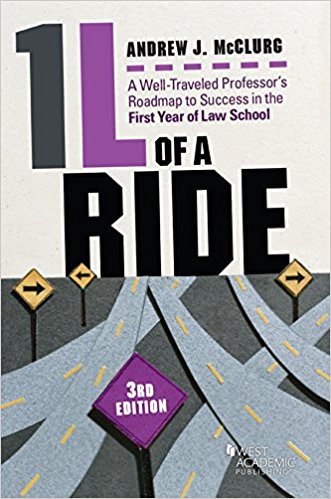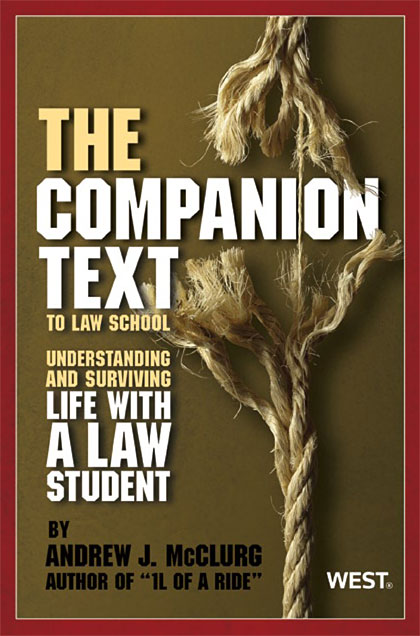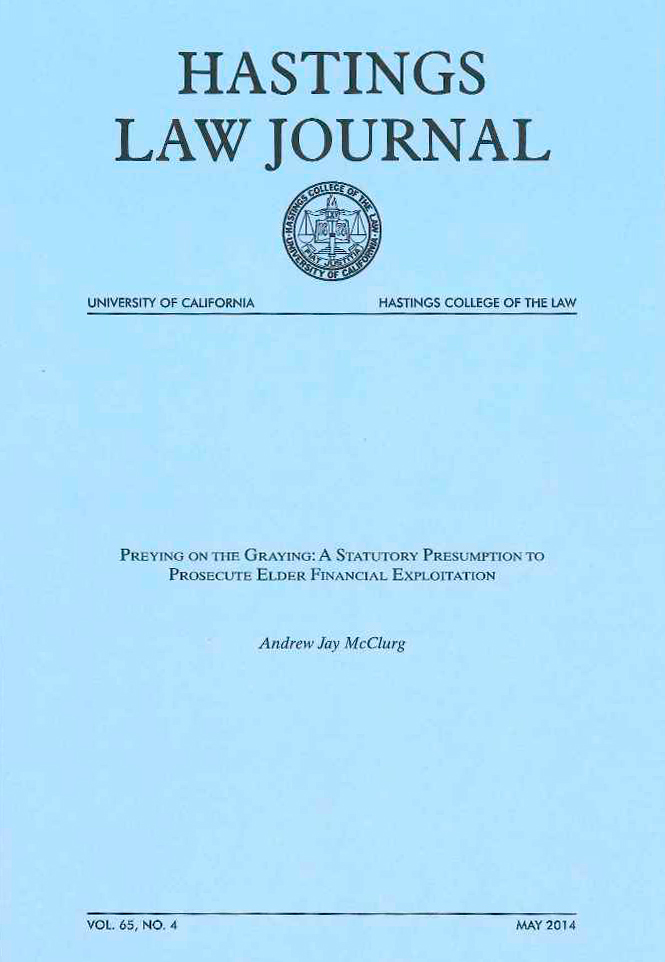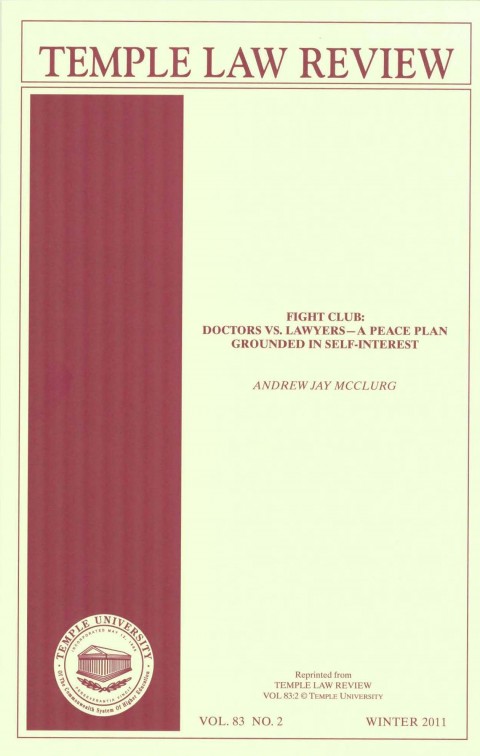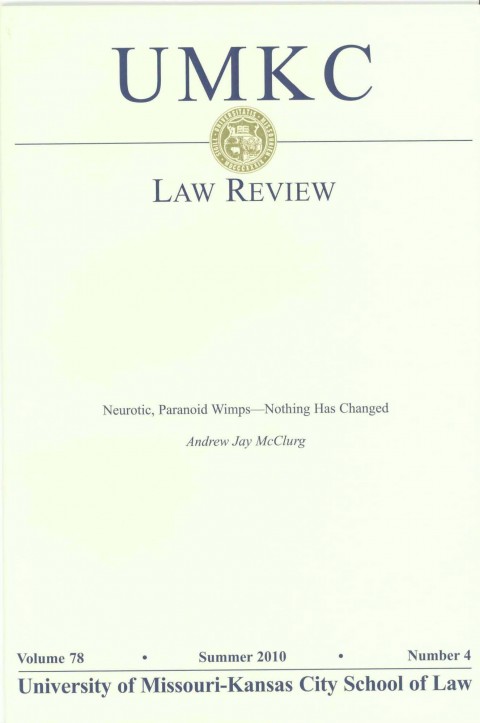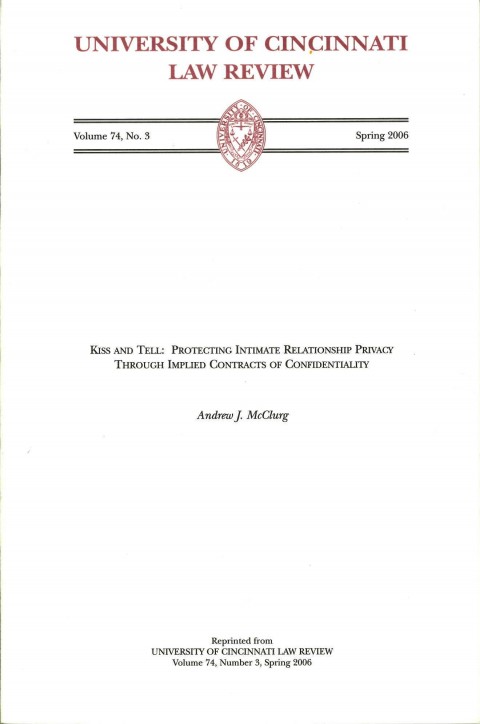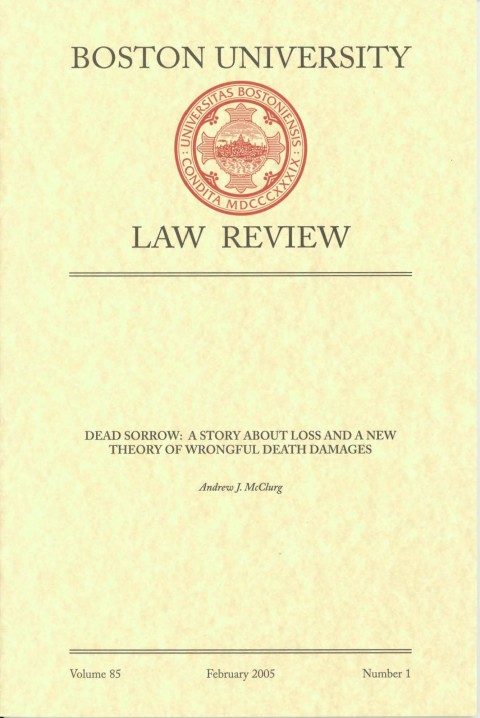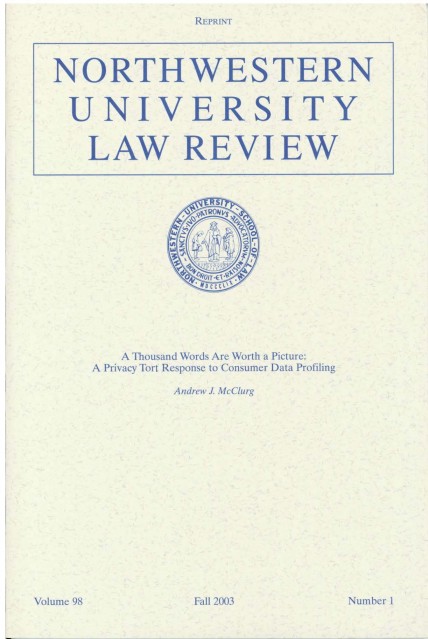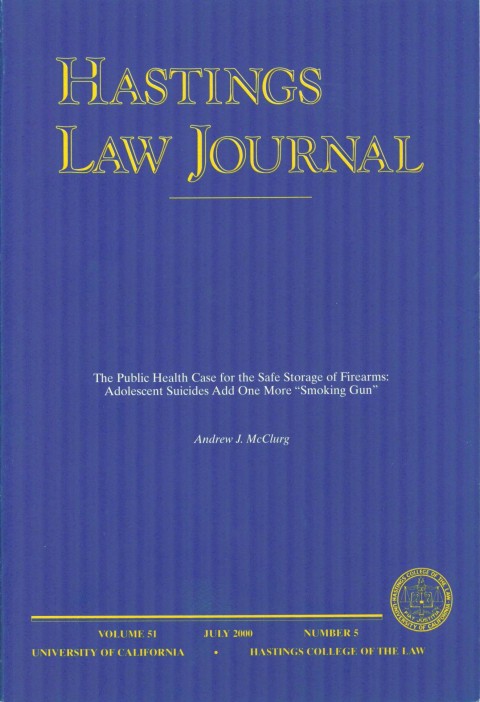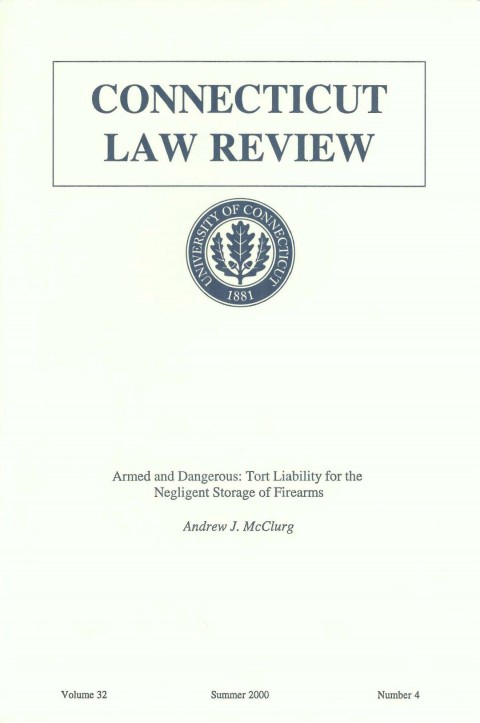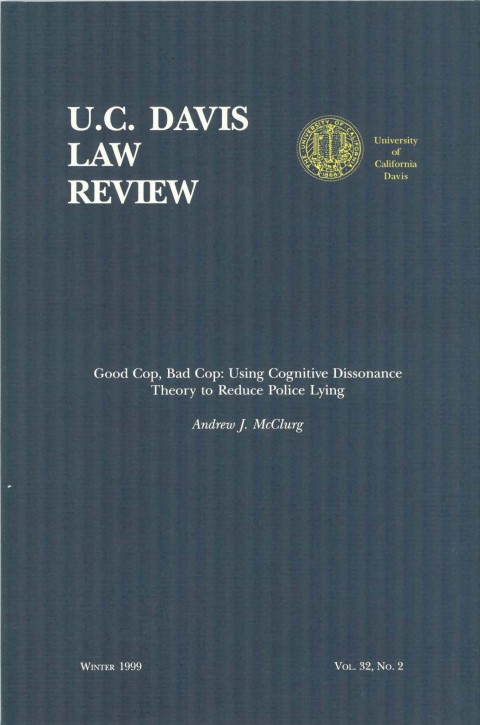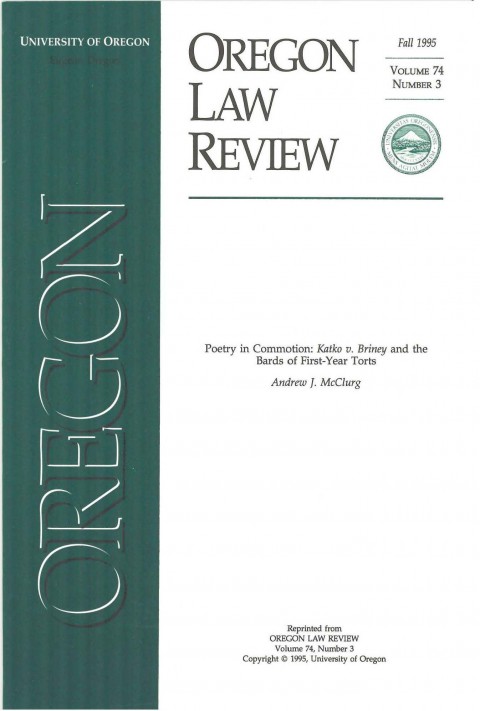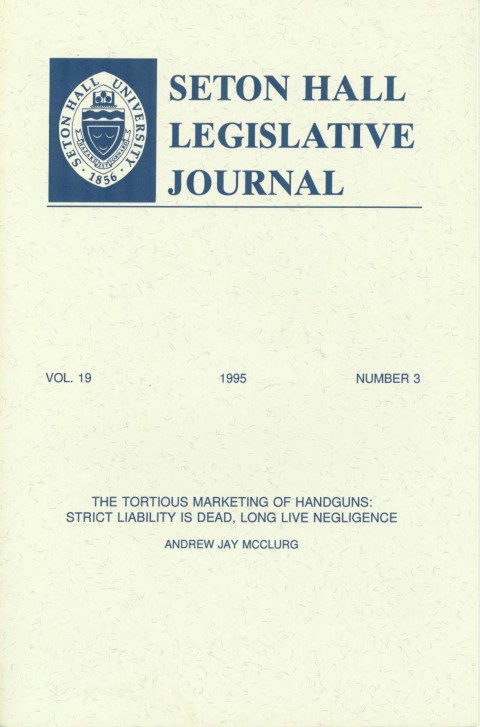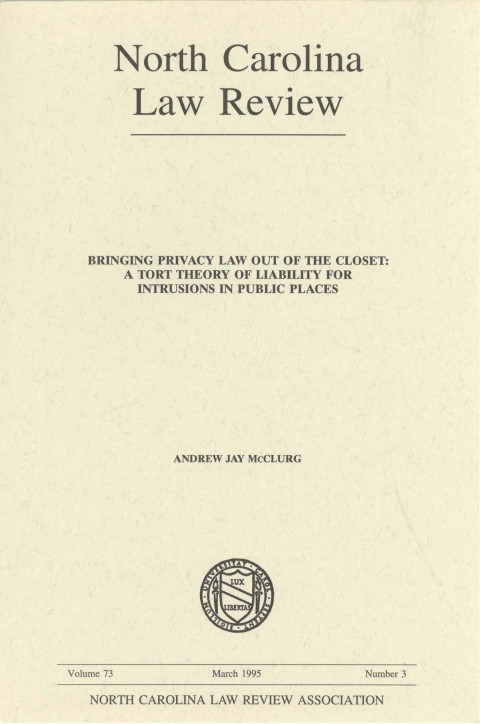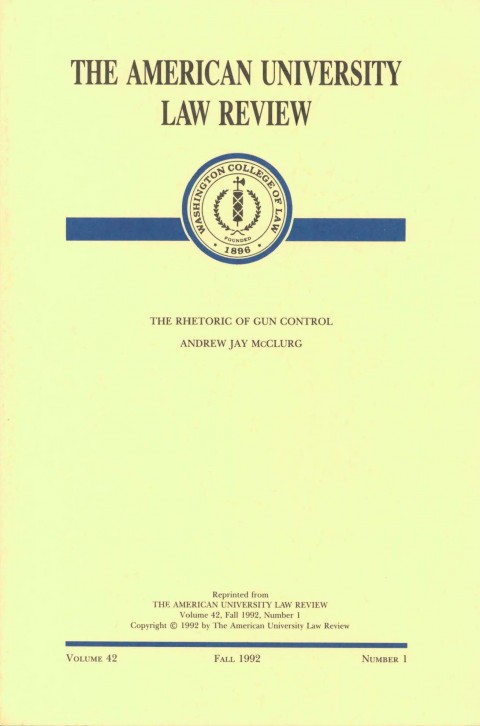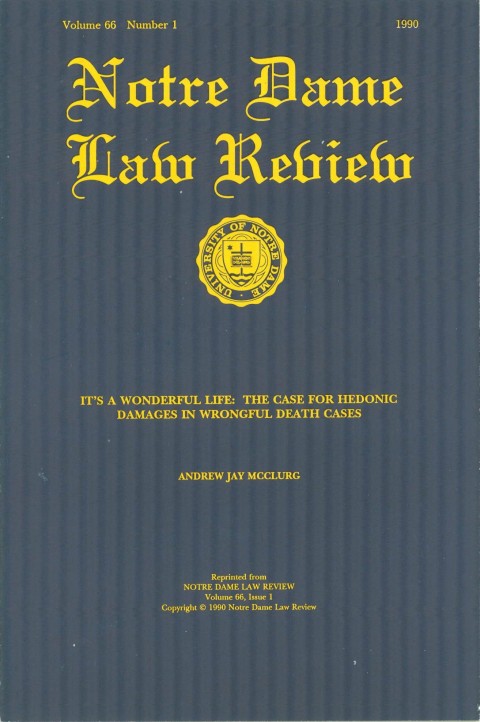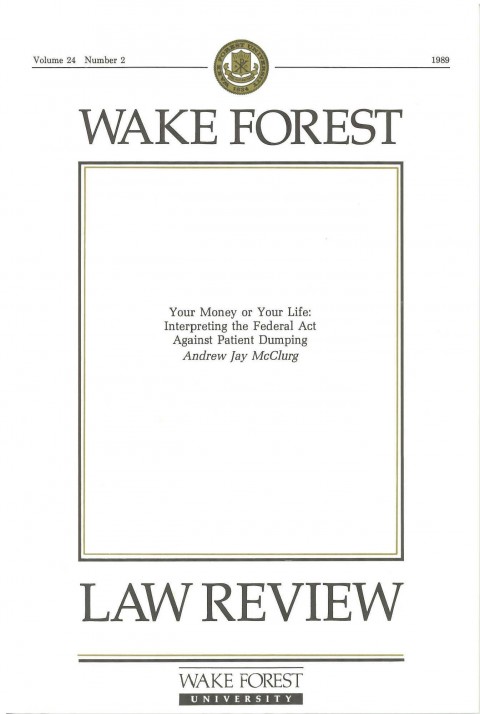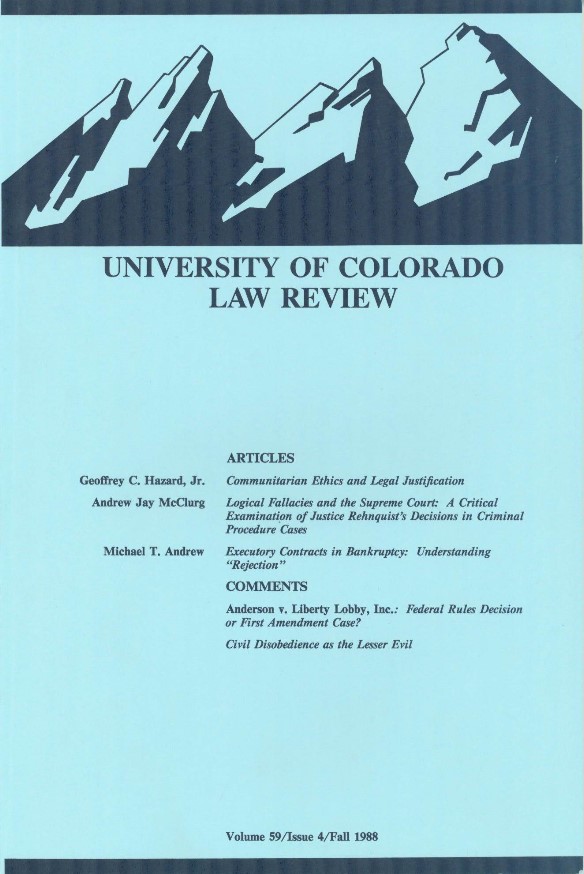November 2nd, 2011 –From Bert Jones, University of Oklahoma College of Law, Date of event: 1956
Your Palsgraf piece in the ABA Journal took me back to my Torts I class at the University of Oklahoma in 1956. When we got to THE CASE, we stayed on it for what seemed like a very long time. One day the professor, Harold Wren (one of the best teachers I ever had at any level), commented that the case had obviously had considerable influence nationwide. He began discussing a Wisconsin case as an example of how courts were following what Cardozo and Andrews had done. I sort of blurted out “Couldn’t have influenced Wisconsin.”
Whereupon Professor Wren had me rise and asked “Why not, Mr. Jones?” I said, “Well, sir, Palsgraf was decided in 1928 and the Wisconsin case you mentioned was in 1924.” He quickly checked his notes, turned and made a large number 1 on the blackboard, turned back and said, “One for you, Mr. Jones.” Thankfully, he did so with a smile!
October 30th, 2011 –From Jon Avery, Georgia State University College of Law, Date of event: 2006
I, like every other 1L, got to take Contracts. And, like every other 1L in Contracts, we studied Hawkins v. McGee, aka the “hairy hand case.”
Someone asked the professor, “How do we know it was the surgery that caused the palm of the hand to be hairy? The guy could have genes that gave him a hairy palm, right?”
The professor responded, rhetorically, by asking, “What is the first thing we should ask when trying to determine whether the surgery caused the hairy palm?” The professor apparently was trying to get the student to think about what part of the body the skin was taken from to graft to the palm.
The inquiring student sat open-mouthed, unable to think of an explanation when someone in the back piped up: “Was he blind, too?”
October 30th, 2011 –From Professor Ann H. Britton, Georgetown Law Center, Date of event: 1972.
I was proud of one of my classmates at Georgetown in 1972 (sorry, long forgot the name of the guilty party)when he briefed Hawkins v. McGee as: “A hand with a burn is worth two with a bush.”
McClurg note. For those who have not yet studied Hawkins v. McGee or have somehow forgotten it, Hawkins is the classic case from first-year Contracts in which the defendant doctor guaranteed plaintiff, a young man with a burned hand, “a hundred per cent perfect hand” if he would let the doctor perform surgery on him. Instead of a perfect hand, plaintiff ended up with one that grew thick hair because of a skin graft from his chest.
October 30th, 2011 –From Erin McCaughey, Florida Coastal School of Law, Date of event: Fall 2004
Our Torts casebook (the well-known Prosser, Wade book) was livened up by photographs of certain important judges and other characters involved in the famous cases.
One prominent photo was of the great Judge Learned Hand, appearing in the middle of his opinion in U.S. v. Carroll Towing, right alongside his famous cost/benefit analysis for negligence cases.
The most prominent part of the photo was that Judge Hand had eyebrow hair that looked about 3 inches long. Not only was it long, it was incredibly thick.
One day in class, the professor asked a student, “What do we remember about Judge Learned Hand?”
“Eyebrows,” the student replied.
The class erupted with laughter, and the professor couldn’t help himself either.
October 30th, 2011 –From Élise Hendrick, University of Cincinnati College of Law, Date of event: 2002
In my Con Law class, we were discussing the “fighting words” doctrine of Chaplinsky v. New Hampshire, in which the petitioner was arrested after distributing anti-Catholic literature and delivering an anti-Catholic harangue in a heavily Catholic neighbourhood in the 1940s. Upon asking why he was under arrest, the officer suggested that he, “Shut up, you damn bastard,” to which Chaplinsky, not to be outdone, replied by calling the officer a “goddamn Fascist” and a “damn racketeer.”
The class went on for about a half hour with comments on how the cop started it, and, how, as the prof summed it up “Chaplinsky got a raw deal.” At this point, unable to resist, I raised my hand and suggested that the Court had perhaps ruled against Chaplinsky because of his apparent ingratitude: “After all, all the poor officer did was urge Chaplinsky to assert his Fifth Amendment rights and he wasn’t even required to do that yet!”
October 30th, 2011 –From Jennifer Pruchnicki, University of Oklahoma College of Law, Date of event: circa 2000
Last year, my Con Law class was usually pretty interesting and lively, but the day we discussed Bowers v. Hardwick is my favorite memory.
[McClurg note: In Bowers, the U.S. Supreme Court rejected a constitutional challenge to a state sodomy statute, finding no fundamental right to sexual activity between consenting unmarried adults.]
A student raised his hand and commented to the professor “So, this case basically says that the courts can regulate what goes on in your bedroom?” After some discussion, the same student innocently mumbled, “Well, that just leaves a bad taste in my mouth.”
October 30th, 2011 –From Jim Brewer, Willamette University College of Law, Date of event: circa 1990
I remember clearly reading and discussing the hairy hand case Hawkins v. McGee in law school. I also remember classmates looking at my own hirsute mitt and wondering if my feelings would be hurt. Fortunately, I’m not the most observant or otherwise perceptive guy, so I didn’t have clue why people were looking at my hands, tittering, and then asking about the value of a hairy hand.
Fortunately (in this time of post-traumatic torts), I finally made the connection this year. My firm works as City Attorneys for a City with brand-new council-chamber robotic cameras for televised hearings on the public access channel. These cameras are in those domes that casinos and grocery stores have, and one of them is directly over the place where I usually doze through the meetings.
Evidently the operator of the robotic camera couldn’t resist zooming the thing straight down onto my hands and leaving the camera there for most of a lengthy land use hearing.
When the Council meeting was broadcast, the City received call after call complaining about the horrible image that cluttered the upper reaches of the cable system. I have reviewed the tape. It is an extreme close-up. And these hands aren’t just matted with hair on their backs (note how I distance myself from the offending extremity). They have long, thick, black locks in two places on each finger. At one point on the tape I’m impatiently tapping a pen on the table, and it looks like a tarantula is performing an indecent act of self-abuse.
When the Court distinguishes between a “perfect hand” and a “hairy hand” what happens to my self-image? You want to talk “genuine hardship?” Even global warming is working against me, since there is virtually no chance I can wear gloves as a fashion statement. I’ve thought about boxing gloves, but typing is so damn hard …
And I think the statute has run for suing that damn contracts prof, too.
October 30th, 2011 –From Ray Baxter, University of Arkansas School of Law at Fayetteville, Date of event: circa 1974
When I was a freshman at the University of Arkansas in Fayetteville, in Contracts we were studying the case of Lucy v. Zamer. We all remember that case in that it stands for the proposition that a person is bound by the reasonable meaning of their offer or response thereto. Professor Al Witte found the case to be of extreme significance and basically talked about it for the better part of two weeks.
One day after having thoroughly indoctrinated us concerning that case, he asked a question. He said, “Mr. Baxter, if I were to have made you an offer and you responded with an uplifted finger, preferably the middle one, what would be the reasonable meaning of your response?” I responded, “Professor Witte, that would depend on what was offered and that it was you who made the offer in the first place.”
Professor Witte was completely embarrassed by this and the entire class erupted in laughter because it was the one and only time that Professor Witte had been had throughout the entire semester. Quite a bit of humor was had during the semester, but never at his expense. He was determined not to be gotten the best of. He then told me, “Mr. Baxter, that is the most lawyer-like thing that you have uttered all semester.” He added that the key words to the answer are “it depends.”
October 10th, 2011 –From Paul Aaron Edwards, Southern Illinois University School of Law, Date of event: Spring 2005
The case under discussion in Constitutional Law was Bowers v. Hardwick. The professor called on me asking me such special questions as “What is your definition of unnatural sex?” As I dodged attempt after attempt by the professor to draw me into a farcical statement which would grant him hundreds of laughs at my expense, he finally slipped up with the following: “So, Mr. Edwards, when is consensual sex particularly harmful?”
To which I replied:
“It depends.”
“On what?”
“Whether you’re the one she likes, or the one she’s cheating on!”
The class erupted in laughter, at the professor’s expense, and I received the greatest reward of all: he called on a different student to recite the rest of the day’s questions.
|
Funny Law School Stories
For all its terror and tedium, law school can be a hilarious place. Everyone has a funny law school story. What’s your story?
|
Product Warning Labels
A variety of warning labels, some good, some silly and some just really odd. If you come encounter a funny or interesting product warning label, please send it along.
|
Tortland

Tortland collects interesting tort cases, warning labels, and photos of potential torts. Raise risk awareness. Play "Spot the Tort." |
Weird Patents
Think it’s really hard to get a patent? Think again.
|
Legal Oddities
From the simply curious to the downright bizarre, a collection of amusing law-related artifacts.
|
Spot the Tort
Have fun and make the world a safer place. Send in pictures of dangerous conditions you stumble upon (figuratively only, we hope) out there in Tortland.
|
Legal Education
Collecting any and all amusing tidbits related to legal education.
|
Harmless Error
McClurg's twisted legal humor column ran for more than four years
in the American Bar Association Journal.
|
|
|


